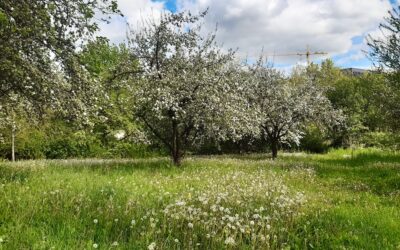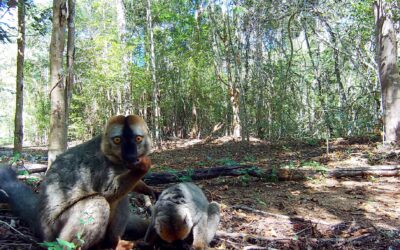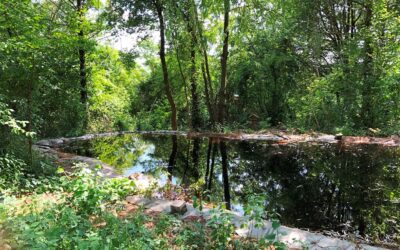Arakan Mountains
The Arakan Yoma Mountains also hold the second largest contiguous lowland rainforest area on mainland Myanmar (16,000 km2).
Where we work
Arakan Yoma Mountain Range
Arakan Yoma is critical for its ecosystem services in the Ayeyarwady Basin. The important watershed provides water to Myanmar’s arid zone, which is most affected by climate change. On and between the rugged mountains still grows well-preserved rainforest with great biodiversity. Due to its great importance for the conservation of biodiversity in Myanmar, it will soon be protected under the name Man River Wildlife Sanctuary. Together with the local communities, various conservation projects are to be implemented. To achieve this, we work with our local partners.
About Arakan
Animals & Plants
The Arakan Yoma Mountains are one of the most critical areas for the conservation of Myanmar’s biodiversity. The difficult-to-access area is home to numerous globally endangered species, such as one of the largest populations of the endangered western hoolock gibbons, pangolins, Phayre’s langurs, Asian black, and Malayan bears, dholes, and various hornbills.
Endangered vocal artists
Gibbons
The Arakan Mountains are home to a large population of the highly endangered Western White-brown Gibbons and are one of the most important areas for the conservation of this charismatic species. In the early hours of the morning, their chants resound over the mountain peaks.
Mysterious mountain dweller
Red Serow
The forests on the mountain slopes are the home of the red serows. This relative of goats and chamois is extremely rare and very little is known about occurrence and spread. They are often the target of sling hunting. This relative of goats and chamois is extremely rare and very little is known about its occurrence and distribution. They are often the target of snare hunting.
Seed dispersers
Hornbills
The spectacular hornbills play an important role in the distribution of seeds in the rainforest. Several hornbill species are found in the Arakan Mountains, including the rare brown hornbill. Several species occur in the Arakan Mountains, including the rare brown hornbill.
Intensively hunted
Bears
Camera traps were used to detect the presence of Malayan and Ruffed bears. Both bear species have disappeared from many areas of Southeast Asia due to habitat loss and heavy hunting for the use of their body parts in traditional Chinese medicine.
Unique biodiversity
Myanmar
The Arakan Mountains are one of the most biodiverse areas in Myanmar and thus of outstanding importance for national conservation.
About Arakan
People & Nature
The project area is located in one of the poorest regions of Myanmar. There are eleven villages, with a population of approximately 2,000 in the area, four of which are in close proximity to the proposed conservation area. The majority of the local communities belong to the Chin ethnic minority, who rely on shifting cultivation and rice farming in the highlands for their livelihood. With an increase in human population, the cropping cycle has shortened, leading to a decline in soil fertility and consequent expansion of land into the remaining primary forest.
Threatened livelihood
Threatened forest
Large forested areas have been transformed into a fragmented mosaic landscape with fields, secondary vegetation of various age stages, and primary forest-remains. In the long term, this leads to a decline in biodiversity and this threatens the survival of tree-living animals such as gibbons and hornbills.
Remote World
Living in the mountains
The villagers are scattered in the mountains and are sometimes difficult to access. Long hikes in steep terrain are the order of the day.
In the picture below left, a ranger shows school children how he counts and observes the gibbons in the forest.
Alternatives needed
Coffee
Alternatives to shifting cultivation are essential for the sustainable safeguarding of local natural resources and the forest’s long-term protection. Coffee grown in a wildlife-friendly way can be a solution to this problem.
Projects
CfN in Arakan
Sustainable coffee production

Wildlife-friendly coffee and gibbon conservation.
Learn more
Don’t miss
News
Follow us on Facebook and Co. to stay up to date!
New research initiatives in our biotope project
For a good year now, the biotope renaturation on the grounds of the German Primate Center has been running with our support and we are very pleased that the first research work could already take place on site: students from the University of Göttingen investigated...
How efficient is the reforestation? Study on restoring destroyed forest areas in Kirindy
Every year, fires threaten and destroy the remaining natural habitats of Madagascar. Our project area in the Kirindy Forest is also acutely threatened by this. Due to slash-and-burn agriculture, deforestation in the region has steadily increased since 2010 and reached...
Mission on our doorstep: our biotope project in Göttingen
At the beginning of the year, we were very happy about the start of our first nature conservation project in Germany: since then, we have been supporting the renaturation of a biotope for native flora and fauna on the grounds of the German Primate Center in Göttingen....





